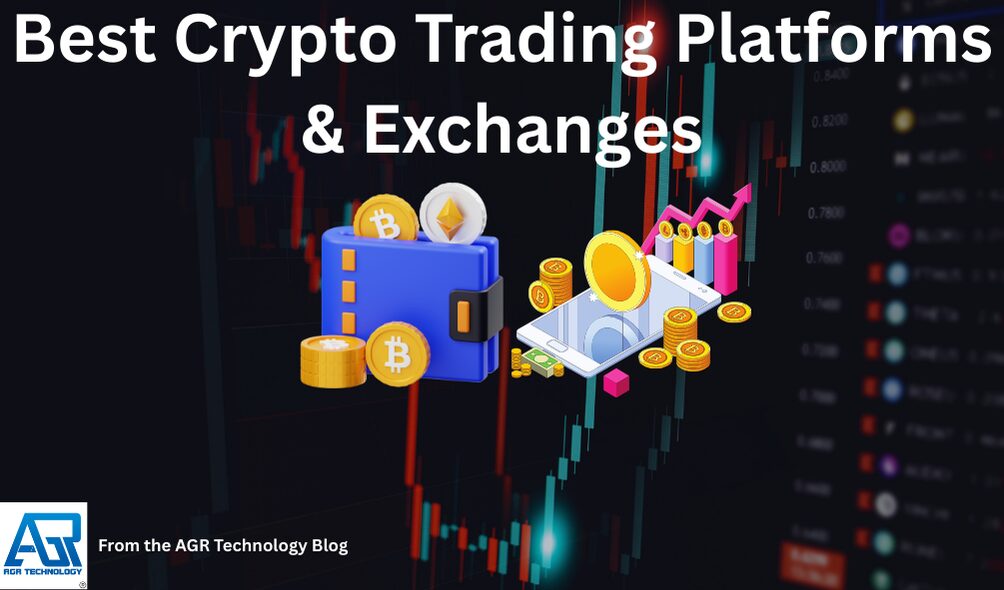Disclaimer: General information only. All kinds of investment (particularly trading CFDs, Cryptocurrency, commodities, and FX) involve significant risk, including the possibility of losing more than the amount invested, as well as market volatility and liquidity hazards. Past performance does not guarantee future results. Most investors will find such operations unsuitable.
The rise of cryptocurrency over the years has created a maze of trading platforms, each claiming to be the best in the market. For traders looking to navigate this complex landscape, choosing the right exchange can mean the difference between a seamless trading experience and constant frustration.
When selecting a crypto exchange, several critical factors come into play: security measures, fee transparency, user interface, and available cryptocurrencies. The best platforms implement robust security protocols like two-factor authentication and cold storage while maintaining transparent fee structures without hidden charges. With over 200 cryptocurrencies supported on leading exchanges and varying fee structures (some as low as 0.02% for makers), traders have plenty of options to consider.
Finding the right balance between security, cost, and usability doesn’t have to be overwhelming. This guide will walk you through the top crypto trading platforms across the world that deliver on these essential features.
Leading 🌐Global Cryptocurrency Exchanges and Trading Platforms in February 2026
OKX
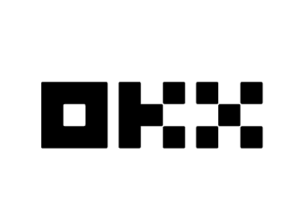
OKX is a prominent cryptocurrency exchange, offering an extensive array of trading services, including spot, margin, futures, and options trading, along with staking and decentralized finance (DeFi) features. Known for its clean, intuitive interface, OKX is accessible to a broad range of traders, from beginners to seasoned professionals. The platform supports over 400 digital assets and boasts high liquidity, making it suitable for high-frequency and algorithmic trading. Users can also access advanced tools such as automated trading bots, customizable yield products, and API integration. Security is a top priority for OKX, with cold storage for the majority of assets, two-factor authentication (2FA), and regular proof-of-reserve audits to ensure the safety of user funds.
Despite its global reach, OKX faces regulatory challenges in specific regions like the United States and mainland China, limiting its availability. Furthermore, while customer support is available 24/7 through live chat and email, some users report mixed experiences with response times. Nevertheless, OKX’s comprehensive features, competitive fees, and user-friendly design make it a strong contender in the cryptocurrency exchange market.
Pros:
-
Wide Range of Trading Options: Supports spot, margin, futures, options, and staking, catering to various trading strategies.
-
High Liquidity: Offers deep liquidity, especially in popular pairs, ensuring smooth trade execution.
-
Competitive Fee Structure: Features low trading fees with discounts for high-volume traders or those holding OKB tokens.
-
User-Friendly Interface: Both the web and mobile platforms are intuitive, making it accessible for traders of all levels.
-
Strong Security Measures: Utilizes cold storage for most assets, 2FA, and regular proof-of-reserve audits to protect user funds.
-
Comprehensive API Access: Supports algorithmic and high-frequency trading with low latency.
-
Innovative DeFi Integration: Provides access to decentralized applications (DApps) and DeFi services through the OKX Wallet.
-
24/7 Customer Support: Offers live chat and email support, with quick resolution times for many user issues.
Cons:
-
Geographical Restrictions: Regulatory hurdles prevent availability in certain regions, including the United States and mainland China.
-
Mixed Customer Support Reviews: While customer support is available 24/7, some users report delayed response times or unsatisfactory experiences.
-
Complex Learning Curve for New Traders: Due to the wide range of advanced tools and features, beginners may find it difficult to navigate the platform initially.
-
No Deposit Insurance: Unlike some competitors, OKX does not provide insurance for user deposits.
-
Limited Fiat Options in Some Regions: Fiat deposit and withdrawal options can be restrictive depending on the user’s location, making it harder for users from certain countries to easily access funds.
In summary, OKX stands out as a robust exchange with a broad set of features, ideal for professional traders and those seeking to explore DeFi and automated trading. However, its regulatory limitations and customer support challenges in some regions may deter some users.
Binance
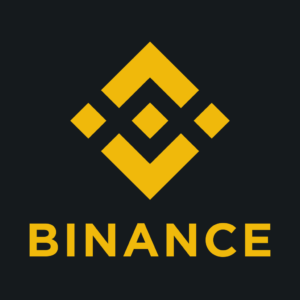
Binance is one of the largest and most versatile cryptocurrency exchanges in the world, offering an extensive range of trading services, including spot trading, futures, margin trading, and staking. With a user-friendly platform and support for over 500 cryptocurrencies, Binance attracts both new and experienced traders. The exchange also boasts competitive fees, with discounts available when using its native Binance Coin (BNB), making it an appealing option for cost-conscious traders. Additionally, Binance offers a variety of tools for passive income, such as Binance Earn, and allows users to participate in token sales via Binance Launchpad. Although Binance offers strong security features, including two-factor authentication and insurance for user funds, it has faced criticism for customer support and its complex interface, which may deter beginners.
Pros:
-
Wide Range of Cryptocurrencies: Supports over 500 crypto assets.
-
Low Trading Fees: Competitive fees, with further discounts for BNB holders.
-
Comprehensive Features: Offers spot, futures, margin trading, staking, and yield farming.
-
Strong Security Measures: Two-factor authentication (2FA) and fund protection programs.
-
Passive Income Options: Features like Binance Earn and staking for earning rewards.
Cons:
-
Customer Support Issues: Mixed feedback on the quality and responsiveness of customer service.
-
Complex Interface: Can be overwhelming for newcomers due to its advanced tools and features.
-
Regulatory Concerns: Binance has faced regulatory challenges in several countries.
PrimeXBT
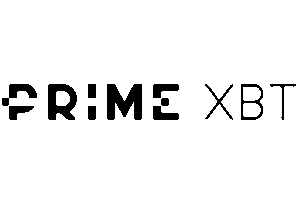
Etoro
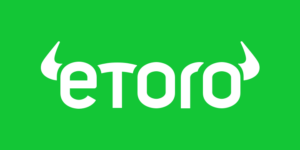
eToro is an excellent choice for traders looking for a reputable, user-friendly, and secure platform with a diverse portfolio of assets and moderate fees. eToro is an excellent alternative for traders of all skill levels due to its commitment to regulatory compliance, excellent customer support options, and flexible deposit methods. The platform accepts not only cryptocurrency, but also traditional stocks and other forms of investment.
eToro is also a regulated and licensed platform, so consumers can be assured that they are safeguarded by regulatory control. The European Securities and Markets Authority (ESMA), CySEC, the Financial Conduct Authority (FCA), and other important regulators oversee and license the platform. This ensures that eToro complies with all applicable rules and regulations, giving users the security and peace of mind they need to trade confidently.
Pros:
- Provides lots of powerful functionality for traders
- Has a unique “copy trading” feature that allows you to copy trades of other users on the platform
- Has social networking functionality built in to enable you to interact with other users and learn more
- Supports copy trading for crypto and stocks
Cons:
- Can be complicated and overwhelming for new users
- It can be challenging to choose the appropriate trader to copy
- A limited number of cryptocurrencies are available
- Fees and spreads may be higher than those found on crypto exchanges.
Bybit
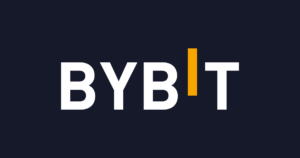
Bitget

Bitget is a prominent cryptocurrency exchange established in 2018, offering a robust platform for both beginner and advanced traders. Known for its extensive selection of over 800 cryptocurrencies, including spot tokens and derivatives, Bitget provides users with a range of features such as margin trading, leverage of up to 125x, and copy trading. It also supports a variety of fiat currencies, including EUR and BRL, along with competitive fees, robust security measures, and a $400 million protection fund. With its user-friendly mobile and desktop apps, Bitget is tailored for traders seeking advanced tools and automated trading strategies, such as bots and copy trading. However, its lack of formal regulation and subpar customer service may deter some users, particularly those looking for more support or regulatory assurance.
Pros:
-
Comprehensive Trading Tools: Advanced features like margin trading, up to 125x leverage, and an array of trading bots.
-
Wide Asset Selection: Supports over 800 cryptocurrencies and nearly 300 derivative markets.
-
Strong Security: Includes a $400M protection fund, proof of reserves, and two-factor authentication.
-
Copy Trading & Bots: Ideal for users who prefer automated or passive trading strategies.
Cons:
-
Lack of Regulation: Bitget operates without official licensing, which could raise concerns about its legal standing.
-
Limited Fiat Support: Only EUR and BRL are directly supported for fiat deposits, limiting options for users in other regions.
-
Customer Service: Slow response times from customer support, particularly during peak hours.
-
Complex Interface: The platform may overwhelm new traders due to its advanced features and lack of a simplified mode.
Coinstash

Coinstash is another Australian based platform based out of Queensland and similar to other platforms was founded in 2017 by Mena Theodorou and Ting Wangwith over 25,000 users on its platform buying and selling various assets.
Through its revolutionary DeFi Connector technology, the exchange provides affordable trading fees on 680+ different cryptocurrencies. DeFi Connector enables Australians to buy a wide selection of altcoins from decentralized exchanges using AUD.
The website offers a number of payment options, instructional resources, and a customer service team dedicated to assisting users with their investments. Coinstash checks a number of boxes for investors searching for a straightforward, easy-to-use spot cryptocurrency exchange. This is all wrapped up in a nice intuitive user interface and like most of the others on our list supported by convenient mobile applications for Android and iOS users.
This DeFi connector offers a unique solution by integrating with multiple blockchains like Solana, Ethereum, BNB Chain, and Polygon. This integration means you don’t need to interact directly with the blockchain, manage smart contracts, or use non-custodial wallets.
All transactions are validated by Fireblocks, which significantly enhances security and protects against various attack vectors. Fireblocks, as a blockchain-based platform, focuses on key principles: zero counter-party risk, elimination of attack vectors, business continuity, granular control, and delivering high-performance, user-friendly products.
Beyond security, the connector also sources information from various databases and financial platforms. This allows it to automatically find crypto assets with the lowest fees and lowest processing fees on their respective blockchain networks, enabling more efficient purchases.
Pros:
- Extra security measures with Fireblock technology
- Mobile app for iOS and Android
- Registered with Australian regulatory bodies like AUSTRAC
- Australian based company
- More than 1,000 cryptocurrencies are supported and AUD support
- Fast bank withdrawal times and good banking integration (in our test with the National Australia Bank within 5 minutes)
Cons:
- There is no USD or stablecoin spot market functionality
- Limited Bitcoin options for trading at the time of writing
Avatrade
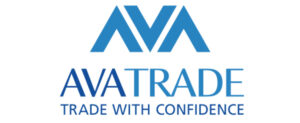
AvaTrade is recognized as one of the top global trading platform, offering a platform for traders to engage in crypto trading. AvaTrade distinguishes itself as a CFD (Contract For Difference) broker, offering access to a diverse range of over 800 markets. This includes opportunities to trade in forex, stocks, commodities, indices, ETFs, bonds, and cryptocurrencies, providing traders with ample options to diversify their portfolios and pursue their investment goals.
With a wide range of products, including forex, indices, shares, ETFs, commodities, and cryptocurrencies, AvaTrade caters to the needs of both beginner and experienced traders. Additionally, it has earned recognition as the best online broker in Taiwan, offering reliable services and favorable trading platforms.
Pros:
-
Trade over 19,000 assets across diverse markets
-
Multi-regulated security
-
User-friendly platform for trading
-
Top-rated trading experience on both web and mobile platforms
-
Comes with social trading features
- Has options for different types of trading beyond just Cryptocurrency
Cons:
-
Requires a $100 minimum deposit requirements to start trading
-
Fewer advanced features
- Doesn’t have functionality for Cryptocurrency wallets to buy and hold Crypto assets can only be used for trading
CoinJar
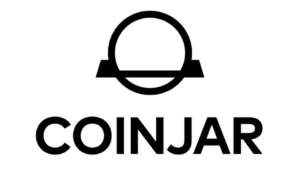
CoinJar is a well-established and trusted cryptocurrency exchange with a long history in the Australian market. It has built a solid reputation for reliability and is an AUSTRAC-verified Australian company based in Melbourne.
While CoinJar offers a user-friendly experience, it currently supports a somewhat limited selection of 65+ cryptocurrencies, which might not suit users seeking a wider array of options. Another point to note is the 1% trading fee on its main app, which is slightly higher than some competitors. However, for more active traders, CoinJar Exchange offers significantly lower fees, ranging from 0% to 0.10%.
Key Features:
- Supports 65+ coins: A decent, though not extensive, range of cryptocurrencies.
- AUSTRAC-verified and Melbourne-based: Reinforces its reputation for trust and compliance.
- Convenient deposit methods: Users can directly purchase crypto and deposit fiat currency using Apple Pay, Google Pay, and Mastercard.
- Operational regions: CoinJar serves customers in Australia, the United Kingdom, and Ireland.
- Tiered fee structure: While the main app charges 1%, the CoinJar Exchange provides much lower fees (0% to 0.10%) for more advanced trading.
Advantages and Disadvantages
PROS:
- Easy deposits: Apple Pay, Google Pay, and Mastercard support make funding accounts simple.
- User-friendly interface: The platform is designed for ease of use.
- Regulatory compliance: Registered with AUSTRAC, enhancing user confidence.
CONS:
- Limited coin selection: With only 65+ coins, it may not cater to all users’ needs.
- Geographic restrictions: Full trading features are available only in supported regions.
Independent Reserve
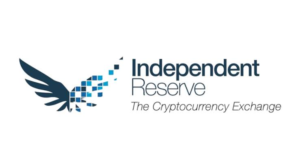
Independent Reserve, an Australian-founded cryptocurrency exchange, offers a streamlined and secure platform catering to both novice and seasoned international traders. Its user-friendly interface and straightforward sign-up process facilitate easy entry into the world of digital assets. The platform even boasts one-click crypto purchases, simplifying the acquisition of popular digital currencies.
A significant advantage for global users is Independent Reserve’s support for direct purchases of dozens of cryptocurrencies using New Zealand dollars (NZD) via SWIFT or PayID. This eliminates the complexities of currency conversions and intricate trading pairs, offering a more direct investment path for international clients. Furthermore, users with Australian bank accounts benefit from additional NPP options for seamless deposits and withdrawals.
Unwavering Commitment to Security
Independent Reserve stands out for its robust security framework, evidenced by its ISO 27001 certification, the highest international standard for information security management. The platform employs several critical measures to safeguard user funds. For instance, over 97% of user assets are held in cold storage, meaning they are kept offline, providing a crucial layer of protection against potential cyber threats. This dual focus on simplicity and stringent security measures positions Independent Reserve as a compelling choice for a diverse global trading audience.
Pros:
• Independent Reserve offers a convenient mobile app and web browser interface
• Its competitive trading fees make it an affordable choice for investors
• It supports over 20 different coins
• The built-in crypto wallet allows for easy storage and management of digital assets
• 24/7 customer support to assist with any issues or questions
• ISO 27001 security certification
Cons:
• A limited number of coins
• The platform does not currently offer staking features
• It comes with an NZD$20 withdrawal fee
• Users depositing less than NZD$5,000 will be charged a processing fee of NZD$15
Kucoin
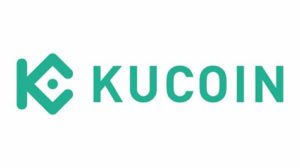
For the international crypto trader, KuCoin positions itself as a robust global exchange, boasting access to over 900 digital assets and a high reported user base. It offers sophisticated trading tools, including integrated TradingView charts, automated trading bots for various strategies (like Spot Grid and DCA), and opportunities for passive income through staking and a lending program. The platform provides substantial leverage options for margin (up to 10x) and futures trading (up to 100x), alongside competitive fees that decrease with higher trading volumes or KCS token holdings. Recent global regulatory pressures have led to a mandatory KYC verification for all users, signifying a move towards greater compliance, exemplified by recent ISO and SOC certifications.
Pros:
- Vast Asset Breadth: Exceptional selection of cryptocurrencies, including emerging and niche altcoins, offering broad diversification opportunities.
- Advanced Trading Suite: Comprehensive tools for technical analysis, automated trading, and high-leverage derivative instruments.
- Competitive Fee Structure: Cost-effective trading, especially for active traders and those leveraging the native KCS token.
- Diverse Earning Avenues: Multiple pathways to generate passive income through various “Earn” products and lending.
- Global Reach & Accessibility: Operates in over 200 countries, with a widely praised mobile application.
Cons:
- Regulatory Scrutiny History: Previous and ongoing legal challenges in major jurisdictions (e.g., US Department of Justice charges, settlement, and market exit) raise concerns regarding long-term regulatory stability and potential future restrictions.
- Mandatory KYC: The shift to universal identity verification eliminates previous pseudo-anonymous trading, which may deter privacy-conscious traders.
- Fiat Off-Ramp Limitations: Lack of direct fiat withdrawal options to many local bank accounts, requiring cryptocurrency off-ramping.
- No Dedicated Desktop Client: Reliance on web-based and mobile platforms for trading.
Exness
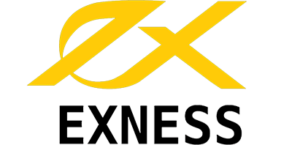
Exness is a multi-asset brokerage catering to international crypto traders with an emphasis on forex and CFDs. Established in 2008, it has expanded globally, securing regulatory oversight from financial authorities such as the FCA, CySEC, and FSCA. Traders benefit from a seamless platform experience with MetaTrader 4, MetaTrader 5, and the proprietary Exness Terminal, facilitating rapid execution and technical analysis. While Exness provides a competitive fee structure, particularly in forex markets, its CFD costs vary across asset classes. Crypto traders can access leveraged digital asset trading through derivatives, though spot cryptocurrency purchases are unavailable. Despite its strong infrastructure, Exness’ strict regional licensing limits retail traders in Europe and the UK, redirecting them to offshore entities with lighter oversight.
Pros:
- Regulated by multiple financial authorities, including top-tier regulators
- Zero commission trading on standard accounts
- Rapid order execution with multiple account types
- Advanced trading tools, including VPS hosting and Trading Central insights
- Diverse funding methods, supporting crypto-based deposits and withdrawals
Cons:
- Limited access for retail traders in Europe and the UK
- Narrow product range, focused primarily on forex and CFDs
- Inconsistent CFD fee structure, with high costs on certain indices
- No spot cryptocurrency trading, only derivatives
- Investor protection available only for professional clients in select regions
For international crypto traders seeking leveraged digital asset trading within a multi-regulated brokerage, Exness offers a streamlined experience with sophisticated trading tools. However, those looking for direct cryptocurrency ownership or extensive market access may find its offerings restrictive.
Coinspot

Understanding Cryptocurrency Exchanges and Trading Platforms

Cryptocurrency exchanges are designated platforms where individuals can register and exchange their crypto coins or tokens for other digital assets or fiat money. These platforms serve as the fundamental infrastructure for the crypto trading ecosystem, providing the necessary tools and liquidity for traders to execute their strategies effectively.
Types of Crypto Exchanges Explained
Cryptocurrency exchanges come in various forms, each catering to different trading needs and preferences:
- Spot Trading Exchanges – These platforms allow users to buy and sell cryptocurrencies at current market prices. Transactions are settled immediately, with traders taking ownership of the actual assets.
- Futures Trading Exchanges – These specialized platforms enable traders to speculate on future cryptocurrency prices without owning the underlying assets. They typically offer higher leverage options but come with increased risk.
- Margin Trading Platforms – These exchanges allow users to borrow funds to increase their trading position size, amplifying both potential profits and losses. Standard fees for margin trading are often higher due to the lending component.
- P2P (Peer-to-Peer) Exchanges – These platforms connect buyers and sellers directly, allowing them to negotiate prices and payment methods without intermediaries. They typically offer greater privacy but may have lower liquidity.
- Broker Platforms – Crypto brokers offer a simplified trading experience with fixed pricing structures rather than dynamic market pricing. They’re designed for convenience rather than advanced trading features.
Centralized vs. Decentralized Platforms
The cryptocurrency exchange landscape is divided into two primary categories, each with distinct characteristics and trade-offs:
Centralized Exchanges (CEX):
- Operated by companies or organizations that maintain full control over the platform
- Require users to complete KYC (Know Your Customer) verification processes to combat fraud
- Store users’ funds and private keys on their servers
- Offer higher liquidity, faster transaction speeds, and more intuitive interfaces
- Vulnerable to potential security breaches and regulatory shutdowns
- Examples include Binance, Coinbase, and Kraken with their robust security measures and wide coin support
Decentralized Exchanges (DEX):
- Built on blockchain networks with no central authority or controlling entity
- Allow users to maintain control of their private keys through self-custody
- Execute trades through smart contracts rather than through an intermediary
- Offer enhanced privacy with minimal or no KYC requirements
- Typically have lower liquidity and more complex interfaces
- Generally considered more aligned with cryptocurrency’s core philosophy of decentralization
- Often feature higher security against large-scale hacks due to their distributed nature
The choice between centralized and decentralized platforms ultimately depends on your priorities: convenience and liquidity versus control and privacy. Many experienced traders use both types of platforms strategically, leveraging the strengths of each for different aspects of their trading strategy.
How to Choose the Right Crypto Exchange for Your Needs

Selecting the optimal cryptocurrency exchange requires careful consideration of several key factors that align with your trading goals and personal preferences. The right platform for you will depend on your experience level, trading volume, security concerns, and which cryptocurrencies you want to access.
Security Features to Look For
Security should be your top priority when choosing a cryptocurrency exchange. Look for these essential security features:
- Regulatory Compliance: Ensure the exchange operates under appropriate regulatory frameworks. Exchanges like Gemini and Coinbase maintain strong compliance with financial regulations, providing an extra layer of protection for users.
- Cold Storage: The most secure exchanges store the majority of user assets in offline “cold storage” wallets that aren’t connected to the internet, protecting funds from potential hackers. Gemini, for example, stores most assets in cold storage solutions to minimize vulnerability.
- Two-Factor Authentication (2FA): This fundamental security feature prevents unauthorized access even if your password is compromised. Always choose exchanges that offer 2FA protection.
- Insurance Coverage: Some leading exchanges provide insurance for digital assets held on their platforms. Gemini offers insurance protection for user deposits, adding significant security for your investments.
- Security Audits: Regular third-party security assessments demonstrate an exchange’s commitment to maintaining robust protections against emerging threats.
Fee Structures and Pricing Considerations
Understanding fee structures is crucial for maximizing your trading profits:
- Trading Fees: These vary significantly between platforms. Kraken offers competitive maker-taker fees ranging from 0.00% to 0.26%, while Binance.US provides zero-fee trading for certain Bitcoin and Ethereum pairs, making them attractive for cost-conscious traders.
- Withdrawal Fees: Many exchanges charge fees when you move cryptocurrencies off their platform. These fees can vary widely by cryptocurrency and platform, significantly impacting your overall costs.
- Deposit Methods: Consider what payment methods the exchange accepts and their associated fees. Some platforms charge higher fees for credit card purchases versus bank transfers.
- Volume Discounts: Many exchanges offer reduced fees based on your 30-day trading volume or if you hold their native tokens, rewarding active traders with lower costs.
- Hidden Costs: Watch for spread markups (the difference between buy and sell prices) that some exchanges apply in addition to stated fees.
User Experience and Interface Design
The platform’s usability directly impacts your trading efficiency and experience:
- Intuitive Navigation: Beginners should prioritize exchanges like Coinbase that offer clean, straightforward interfaces with essential features clearly displayed. These user-friendly designs reduce the learning curve and minimize costly mistakes.
- Mobile App Functionality: Quality mobile apps allow you to monitor markets and execute trades on the go. Crypto.com stands out with its robust mobile app that includes comprehensive trading features and portfolio management tools.
- Advanced Trading Tools: If you’re an experienced trader, look for platforms with depth charts, multiple order types, and customizable trading views to support sophisticated strategies.
- Account Verification Process: Consider how streamlined the onboarding process is. Some exchanges offer faster verification, while others may have lengthy processes that delay your ability to deposit funds and start trading.
- Educational Resources: Leading platforms provide tutorials, market insights, and learning materials to help users develop their trading skills and cryptocurrency knowledge.
Top Crypto Exchanges for Beginners

For those new to cryptocurrency trading, finding a user-friendly and educational platform is crucial to navigate this complex market successfully. The best exchanges for beginners combine intuitive interfaces with robust learning resources to help newcomers build confidence and skills.
User-Friendly Platforms with Educational Resources
- Coinbase: Coinbase stands out as the premier platform for crypto beginners with its exceptionally intuitive interface and comprehensive educational content. The platform offers simple buy/sell options alongside a highly rated mobile app that makes crypto trading accessible to novices. Users gain access to an extensive library of tutorials and guides that explain fundamental concepts and strategies in easy-to-understand language.
- Gemini: Regulated by the New York State Department of Financial Services, Gemini provides beginners with a secure trading environment. The platform features clear fee structures and abundant educational resources designed to help newcomers understand cryptocurrency markets. Its focus on regulatory compliance offers an additional layer of protection for those just starting their crypto journey.
- Binance.US: While offering some of the industry’s lowest fees, Binance.US caters to beginners through its educational resources. The platform includes helpful guides and tutorials, though its more complex features make it slightly better suited for users who have some basic understanding of cryptocurrency trading concepts.
- MEXC: This platform distinguishes itself with diverse educational materials covering multiple aspects of crypto trading. MEXC offers comprehensive guides on both futures and spot trading alongside a blockchain encyclopedia that helps beginners understand the technical terminology and concepts essential to cryptocurrency markets.
Exchanges with Simplified Trading Processes
- Coinbase: Beyond its educational resources, Coinbase excels at simplifying the entire trading process. Its thoughtfully designed interface guides new users through each step of buying, selling, and storing cryptocurrencies. The platform eliminates unnecessary complexity, allowing beginners to execute trades with confidence from their first transaction.
- Gemini: Offering a straightforward platform for buying, selling, storing, and staking cryptocurrencies, Gemini prioritizes both security and user experience. The streamlined interface presents options clearly without overwhelming new traders with technical jargon or complicated features. Its emphasis on regulatory compliance provides added peace of mind for beginners concerned about security.
- Bybit: Known for its user-friendly interface and attractive bonus options for new traders, Bybit makes cryptocurrency trading accessible to beginners. The platform features a clean design with logical navigation that helps users quickly find what they need. However, potential users should note that Bybit operates as a more centralized exchange and isn’t available in either the US or UK markets.
When selecting a beginner-friendly crypto exchange, look for platforms that offer several key features: an intuitive user interface that doesn’t require technical expertise, comprehensive educational resources including tutorials and guides, demo accounts that allow practice trading without financial risk, transparent fee structures that prevent unexpected costs, and responsive customer support available to address questions and concerns promptly.
Best Exchanges for Advanced Traders

Advanced crypto traders require sophisticated platforms with comprehensive tools, diverse trading options, and high-performance capabilities. These exchanges offer the depth and flexibility needed for complex trading strategies.
Platforms with Advanced Trading Tools
Advanced trading tools are essential for experienced cryptocurrency traders looking to optimize their strategies and maximize profits. Top platforms in this category offer sophisticated features that provide traders with greater control and analysis capabilities.
Gemini ActiveTrader stands out with its customizable layouts and real-time strategy execution capabilities. The platform allows traders to create personalized trading environments tailored to their specific needs while offering dual market trading features that expand opportunities across different markets simultaneously.
Kraken Pro delivers a professional-grade interface specifically designed for advanced traders. The platform provides robust analytical tools, advanced charting capabilities, and a comprehensive suite of order types that satisfy the demands of experienced traders seeking precision in their executions.
Coinbase Advanced Trade offers an impressive selection of over 552 spot trading pairs, giving traders extensive options for diversification and strategy implementation. The platform’s sophisticated environment includes advanced charting tools and order types that enable precise trade execution and strategy refinement.
Altrady distinguishes itself by supporting integration with multiple exchanges, allowing traders to manage all their trading activities from a single platform. Its smart trading automation features include trailing stop loss, trailing take profit, ladder orders, and OCO (One-Cancels-Other) orders. These tools help traders of all experience levels implement complex strategies while managing risk effectively.
Exchanges Offering Margin Trading and Derivatives
Margin trading and derivatives provide advanced traders with additional opportunities to maximize profits through leverage and specialized financial instruments. These advanced trading options require platforms with robust risk management tools and reliable execution.
Gemini offers access to high-risk assets including perpetual contracts, crypto futures, and indices. This comprehensive selection allows sophisticated traders to implement complex strategies across various market conditions. The platform’s margin trading capabilities enable traders to amplify their position sizes while maintaining appropriate risk controls.
Kraken has established itself as a leader in margin trading and derivatives offerings. The platform provides traders with leverage options that can significantly increase potential returns on successful trades. While specific details aren’t provided on the Kraken Pro site, the exchange is widely recognized for its stable and reliable margin trading environment.
Altrady supports futures trading across multiple exchanges through its integrated platform. This capability allows traders to access derivatives markets from various providers without needing to switch between different interfaces. The platform’s unified approach simplifies the management of complex derivative strategies across multiple venues.
When selecting an exchange for margin trading or derivatives, advanced traders should carefully consider the platform’s stability, liquidation policies, and fee structures. These sophisticated trading methods carry higher risks that require robust platform infrastructure and transparent terms to manage effectively.
Exchanges with the Lowest Fees
Minimizing transaction costs is crucial for crypto traders, especially those who execute frequent trades or deal with large volumes. Finding exchanges with the lowest fees can significantly impact overall profitability in the long run.
No-Fee and Low-Fee Trading Options
Binance.US leads the pack with zero-fee trading for Bitcoin and Ethereum pairs, making it an exceptional choice for traders focused on these major cryptocurrencies. The platform extends its cost-efficiency by offering reduced fees for users who pay with the native BNB token.
Kraken delivers competitive pricing with a fee structure that scales with trading volume, ranging from 0% to 0.26%. This tiered approach rewards high-volume traders with progressively lower costs, enhancing profitability for serious investors.
Robinhood Crypto appeals to cost-conscious traders with its commission-free trading model, though it supports fewer cryptocurrencies than specialized exchanges. This platform is particularly suitable for beginners or casual traders prioritizing simplicity and zero trading fees.
Interactive Brokers combines low fees with professional-grade trading tools, catering to more experienced traders who need advanced features without excessive costs. Their competitive fee structure helps maximize returns on both small and large transactions.
Bitstamp implements a straightforward flat 0.5% fee for both maker and taker orders, offering predictability for traders who prefer a simple, transparent pricing model without complicated tier structures.
Hidden Costs to Watch Out For
Withdrawal fees can significantly impact overall trading costs, with rates varying widely between platforms. Some exchanges charge fixed fees while others use percentage-based models, particularly for fiat currency withdrawals. Always check these fees before selecting an exchange, especially if you plan to frequently move assets off the platform.
Network fees are unavoidable blockchain transaction costs that exchanges pass on to users. These fees fluctuate based on network congestion, potentially spiking during high-activity periods. Bitcoin and Ethereum networks typically experience higher fees during market volatility or peak trading hours.
Conversion fees apply when exchanging between different currencies, whether crypto-to-crypto or fiat-to-crypto. These sometimes hidden costs can range from 0.5% to 5% depending on the platform and currency pair. Always examine the actual execution price against market rates to identify potential markup fees.
Deposit method surcharges often apply when funding accounts with credit cards or certain payment processors. While bank transfers typically incur minimal fees, convenience methods like credit cards can add 3-5% in processing costs that significantly reduce purchasing power.
Inactivity fees are charged by some platforms when accounts remain dormant for extended periods. Review fee schedules carefully to avoid unexpected charges on rarely used accounts, as these can gradually deplete holdings over time.
Most Secure Cryptocurrency Exchanges

Security remains the paramount concern for cryptocurrency traders as digital asset theft continues to pose significant risks. The most secure exchanges implement multiple layers of protection to safeguard user funds and personal information.
Exchanges with Top-Tier Security Measures
Gemini stands out as a security leader in the cryptocurrency exchange landscape, operating under New York State regulation with insured custody for digital assets. The exchange employs advanced security certifications and comprehensive protection protocols, making it the top choice for security-conscious traders. Their regulatory compliance framework ensures strict adherence to industry standards and government regulations.
Kraken follows closely with institutional-grade security features and an impressive track record of maintaining asset safety. The platform implements rigorous security protocols and has avoided major security breaches throughout its operational history. Kraken’s security setup includes extensive verification procedures and advanced encryption technology to protect user accounts and transactions.
Coinbase, while known primarily for its user-friendly interface, also maintains robust security measures with strong regulatory compliance. The platform implements strict KYC (Know Your Customer) policies and employs advanced fraud detection systems to prevent unauthorized access to user accounts. Their security infrastructure includes multiple protection layers for both consumer and institutional clients.
Binance.US offers standard security features with regulatory compliance measures, though its security framework is not as comprehensive as Gemini or Kraken. The platform maintains basic protection protocols including account verification and authentication systems to protect user assets.
Cold Storage and Insurance Policies
Cold storage represents the gold standard in cryptocurrency security, keeping the majority of digital assets offline and inaccessible to hackers. Gemini stores most user cryptocurrencies in offline cold storage wallets, significantly reducing exposure to online threats. This offline storage approach creates a physical barrier that makes large-scale theft practically impossible.
Kraken similarly employs extensive cold storage solutions, keeping approximately 95% of all deposits in air-gapped, offline storage facilities. Their cold wallet infrastructure includes geographically distributed storage locations with multiple security layers protecting physical access.
Insurance coverage provides an additional security layer for traders. Gemini offers comprehensive insurance for digital assets held in custody, covering losses from theft, hacking incidents, or other security breaches. This policy encompasses both hot wallet (online) and cold storage assets, providing users with financial protection beyond technical security measures.
Coinbase maintains insurance policies for cryptocurrency held online, though coverage varies by asset type. Their insurance primarily covers digital assets in hot wallets, with additional protection mechanisms for cold storage funds. This combination provides users with financial safeguards against potential security incidents.
While most top exchanges use cold storage, the extent of insurance coverage varies significantly. Binance.US and Crypto.com utilize cold storage systems but offer more limited insurance protection compared to industry leaders like Gemini. When evaluating exchanges, traders should consider both the percentage of assets kept in cold storage and the scope of insurance policies protecting those assets.
Best Mobile Apps for Cryptocurrency Trading
As cryptocurrency trading becomes increasingly popular, mobile apps have emerged as essential tools for traders who want to manage their portfolios on the go. These applications offer convenience without sacrificing functionality, allowing users to trade from anywhere at any time.
Top-Rated Mobile Trading Experiences
Coinbase offers one of the most highly-rated mobile experiences in the crypto space, with impressive ratings of 4.7/5 on Apple’s App Store and 4.6/5 on Google Play. The app delivers a comprehensive investment experience with seamless fiat integration, multiple trading options, and intuitive wallet storage. Its user-friendly interface caters to both beginners and advanced traders, making complex operations accessible through a streamlined mobile experience.
Crypto.com’s mobile app stands out for its versatility, providing users with access to spot trading, derivatives, and DeFi services in one platform. Supporting various fiat currencies including USD, GBP, EUR, AUD, and CAD, the app has earned a strong 4.85 rating on Google Play. Active mobile traders appreciate its fee discount structure and rewards program, which enhance the overall trading experience.
Robinhood Crypto delivers a mobile-first design with a commission-free trading model that appeals particularly to newcomers entering the cryptocurrency market. While lacking some advanced features found on dedicated exchanges, its simplicity and zero-fee approach make it an excellent starting point for casual traders who prioritize ease of use over complex trading tools.
Kraken’s mobile application brings advanced trading capabilities to portable devices, featuring robust security protocols alongside sophisticated trading options. The app supports margin trading and staking features, making it particularly valuable for traders who need liquidity and security while managing positions away from their desktops.
Apps with Comprehensive Feature Sets
Coinbase leads the pack with multiple account tiers that cater to different user needs, including standard accounts for beginners, Pro and Advanced Trade for intermediate users, and Prime for institutional investors. Beyond traditional trading, the app includes NFT trading capabilities, an integrated digital wallet, tax help subscription services, and comprehensive educational resources that help users develop their trading knowledge.
Crypto.com offers an all-in-one mobile experience with support for numerous cryptocurrencies, fiat on-ramp options, and progressive fee discounts based on trading volume. The app integrates mobile payment functionality with DeFi and NFT platforms, creating a comprehensive ecosystem for crypto enthusiasts who want to manage all their digital asset activities through a single interface.
OKX and Bybit provide mobile apps tailored for advanced traders, supporting futures and margin trading with high leverage options across extensive coin listings. Both platforms complement their trading features with attractive bonus and reward structures, making them particularly appealing to high-volume traders seeking to maximize their trading potential through mobile devices.
Gemini’s mobile app emphasizes strong compliance standards and security certifications while maintaining an intuitive interface that works well for both retail and institutional clients. The app features insured custody solutions and streamlined trading options that balance security with usability, making it especially valuable for security-conscious mobile traders.
Exchanges with the Widest Selection of Altcoins
For traders seeking diverse investment opportunities beyond Bitcoin and Ethereum, exchanges with extensive altcoin selections provide access to emerging markets and potential high-growth tokens. These platforms stand out for their comprehensive offerings:
- BitMart offers one of the industry’s widest selections of altcoins, making it an ideal destination for traders looking to access emerging cryptocurrencies before they reach mainstream exchanges. The platform continuously updates its listings with new tokens, providing early investment opportunities for risk-tolerant traders.
- Binance supports over 1,500 trading pairs and lists new cryptocurrencies regularly, giving traders access to both established altcoins and emerging tokens. Their thorough vetting process helps maintain quality while still offering exceptional variety for diversification strategies.
- Kraken features more than 350 cryptocurrencies available for trading, striking a balance between quantity and quality. Their selection includes both major cryptocurrencies and carefully vetted altcoins, appealing to traders who want options without excessive risk exposure.
Platforms for Access to Emerging Cryptocurrencies
When it comes to discovering the next big cryptocurrency before mainstream adoption, certain exchanges lead the market in listing emerging tokens:
- Binance consistently ranks among the first major exchanges to list promising new cryptocurrencies, giving traders early access to potential high-growth assets. Their Launchpad platform specifically focuses on introducing innovative blockchain projects to the market, creating opportunities for early investors.
- Crypto.com maintains a diverse portfolio of cryptocurrencies that includes both established coins and carefully selected emerging projects. Their streamlined listing process allows promising new tokens to reach the platform relatively quickly after gaining market traction.
- BitMart specializes in providing access to early-stage cryptocurrencies, often listing tokens shortly after their initial coin offerings or launch phases. This approach appeals to traders looking to capitalize on projects with significant growth potential before they reach wider market awareness.
Variety of Trading Pairs Available
Trading pairs diversity directly impacts trading strategies and portfolio management options:
- Binance leads the industry with over 1,500 trading pairs, offering unparalleled flexibility for traders. This extensive selection allows for complex trading strategies across multiple markets and simplifies portfolio diversification without transferring assets between platforms.
- Kraken provides robust trading pair options that support both major and minor cryptocurrencies. Their carefully curated selection focuses on quality and liquidity, ensuring traders can execute orders efficiently across various market combinations.
- Crypto.com offers a comprehensive range of trading pairs designed to accommodate both beginners and experienced traders. Their platform supports fiat-to-crypto, crypto-to-crypto, and stablecoin trading pairs, providing multiple entry and exit points for various investment strategies.
Regulatory Compliance and Geographic Availability
Cryptocurrency exchanges operate under varying regulatory frameworks worldwide, significantly affecting their availability and service offerings across different regions. Understanding these geographic restrictions is essential for traders selecting the right platform for their needs.
Exchanges Available in the United States
The U.S. cryptocurrency market is heavily regulated, requiring exchanges to comply with strict financial regulations. Several reputable platforms have successfully navigated this regulatory landscape:
- Coinbase stands out for its user-friendly interface and robust compliance with U.S. regulations. The platform has established itself as a trusted option for beginners and experienced traders alike.
- Gemini offers exceptional security features and operates under New York State Department of Financial Services regulation, providing an added layer of protection for U.S. users.
- Binance.US provides American traders with access to a wide variety of cryptocurrencies while maintaining competitive low fees. This platform serves as the U.S.-compliant version of the international Binance exchange.
- Kraken delivers high liquidity and deep order books for U.S. traders, making it particularly valuable for those executing larger transactions.
- Robinhood Crypto appeals to casual investors with its commission-free trading model, though it offers a more limited selection of cryptocurrencies compared to dedicated exchanges.
International Trading Platform Options
For users outside the United States, several platforms offer expanded services and features:
- Binance operates as one of the world’s largest cryptocurrency exchanges with extensive trading options, though regulatory restrictions prevent its use by U.S. residents.
- Bybit has gained popularity for its high trading volumes and offers no KYC services in certain regions, appealing to users seeking simplified verification processes.
- Crypto.com provides strong fiat on-ramp facilities, making it easier for international users to convert traditional currencies to cryptocurrencies.
- OKX delivers a comprehensive trading and web3 platform with diverse cryptocurrency offerings for international traders.
- Kraken maintains a global presence beyond its U.S. operations, offering international users high liquidity and advanced trading features.
Each platform has distinct advantages regarding fees, security protocols, and cryptocurrency selection. Traders should carefully consider their geographic location and specific trading requirements when selecting an exchange.
How to Get Started on a Crypto Exchange
Getting started with crypto trading requires a few essential steps that every trader must complete before making their first investment. The process is straightforward but involves important security measures to protect your funds and identity.
Account Setup and Verification Process
Setting up an account on a crypto exchange involves several critical steps designed to ensure both security and regulatory compliance. First, visit the exchange’s official website or download their mobile app to create your account with a valid email address and strong password. Most reputable exchanges then require Know Your Customer (KYC) verification as a mandatory security measure. This typically involves uploading a government-issued ID such as a driver’s license or passport, and sometimes providing a selfie or proof of address. This verification process isn’t just bureaucratic red tape—it’s a crucial security feature that protects the platform from fraud and ensures regulatory compliance.
Once your identity is verified, immediately enable two-factor authentication (2FA) for your account. This adds an extra security layer by requiring a second verification method (usually a code from an authenticator app or SMS) when logging in or making transactions. Many secure exchanges like Gemini and Kraken make 2FA mandatory, as it significantly reduces the risk of unauthorized account access even if your password is compromised.
Funding Your Account and Making Your First Trade
After completing verification, you’ll need to fund your account before trading. Exchanges offer various deposit methods including bank transfers (ACH/wire), credit/debit cards, and cryptocurrency transfers from external wallets. Bank transfers typically have lower fees but take longer to process (1-5 business days), while card payments offer instant funding but often incur higher fees (around 3-4%). Some exchanges like Coinbase support alternative payment methods such as PayPal for added convenience.
When you’re ready to make your first trade, select the trading pair that matches your investment goals—for example, BTC/USD to buy Bitcoin with US dollars or ETH/BTC to exchange Ethereum for Bitcoin. You’ll encounter two primary order types: market orders, which execute immediately at the current price, and limit orders, which allow you to set a specific price at which you want to buy or sell. Market orders provide convenience and immediate execution but may result in slightly different prices than expected during volatile periods. Limit orders give you more control over your entry price but may not execute if the market doesn’t reach your specified price.
After purchasing cryptocurrency, you face an important security decision: keep your assets on the exchange for convenient trading or withdraw them to a personal wallet for enhanced security. While leaving small amounts on reputable exchanges like Kraken or Gemini (which use cold storage security) can be reasonable for active traders, security experts recommend transferring larger holdings to personal wallets to minimize exposure to exchange-related risks.
Key Takeaways
- Cryptocurrency exchanges come in various types including spot trading, futures trading, margin trading, P2P, and broker platforms, each serving different trading needs and risk appetites.
- When choosing a crypto exchange, prioritize security features like regulatory compliance, cold storage, two-factor authentication, and insurance coverage to protect your investments.
- Beginner-friendly exchanges like Coinbase and Gemini offer intuitive interfaces and educational resources, while advanced traders benefit from platforms with sophisticated tools like Kraken Pro and Gemini ActiveTrader.
- Fee structures vary significantly between exchanges, with some like Binance.US offering zero-fee trading for certain pairs, while hidden costs such as withdrawal fees and conversion fees can impact overall profitability.
- The most secure cryptocurrency exchanges implement multiple security layers, with Gemini and Kraken leading through cold storage solutions, insurance policies, and strong regulatory compliance.
- Mobile trading apps have become essential tools for cryptocurrency investors, with Coinbase and Crypto.com offering highly-rated experiences that combine comprehensive features with user-friendly interfaces.
Conclusion: Choosing the Best Exchange for Your Crypto Journey
Finding the right cryptocurrency exchange is a personal journey that depends on your unique trading goals expertise level and risk tolerance. The ideal platform balances security features competitive fee structures and usability while offering the specific cryptocurrencies you’re interested in trading.
Beginners might prioritize user-friendly platforms with educational resources while advanced traders need sophisticated tools and diverse trading options. Security-conscious users should focus on exchanges with robust protection measures and proper regulatory compliance.
Remember that the crypto landscape evolves rapidly. What works for your needs today might change as you gain experience and as the market develops. Many experienced traders ultimately use multiple exchanges to leverage the strengths of each platform while minimizing their individual limitations.
The best crypto exchange is ultimately the one that helps you meet your financial goals safely efficiently and confidently.
Note: This is not financial advice and is just designed to provide general information. While we run our own checks and assess each company included on our website, we may not have covered all options. If you decide to apply for a product, you will interact directly with the vendor, not AGR Technology. AGR Technology suggests that you read the appropriate PDS or offer documents before accepting any financial product offer to assess whether the products are suitable for you. Target Market Determinations are available on the provider’s website.
AGR Technology may receive a commission on sales generated by partner links on this page, but this has no influence on our opinions or evaluations and is completely free of charge to you. While we make every attempt to keep our content up-to-date this should not be taken as financial advice, be sure to seek professional advice if required.
Factors considered when writing this article:
We set criteria for picking loan platforms to analyse, such as reputation, services offered, user base, regulatory compliance, types of loans available and the years of operation along with browsing the respective websites to validate they have licences and compliance to operate in Australia, as well as other things like KYC protocols and contacting the companies.
Checked each platform for user-friendly design interfaces to ensure platforms are straightforward for beginners and more experienced customers to grasp. We obtained information about each company by visiting their separate websites, signing up for an account, reading user reviews, and looking for recent news or events related to the platforms.
Country specific guides on our blog:
🇦🇺 Top Australian Cryptocurrency exchanges
🇳🇿 Top New Zealand Cryptocurrency exchanges
🇦🇪 Top Cryptocurrency exchanges for the UAE
🇿🇦 Leading Cryptocurrency exchanges for South Africa
🇨🇦 Canadian Cryptocurrency exchanges
🇮🇳 Leading Cryptocurrency exchanges for India
🇳🇴 Top Cryptocurrency exchanges for Norway
🇸🇦 Quality Cryptocurrency exchanges for Saudi Arabia
🇧🇭 Best Cryptocurrency exchanges for Bahrain
Frequently Asked Questions
How do I choose the right cryptocurrency exchange?
Choose an exchange by evaluating security measures, fee transparency, user interface, and available cryptocurrencies. Consider your experience level, trading volume, and security needs. Top exchanges offer strong security protocols like 2FA, cold storage, and insurance, while supporting over 200 cryptocurrencies with competitive fee structures. Your ideal platform should balance security, cost, and usability.
What’s the difference between centralized and decentralized exchanges?
Centralized exchanges (CEX) are managed by companies that act as intermediaries, offering higher liquidity and faster transactions but with potential security risks. Decentralized exchanges (DEX) operate without intermediaries using smart contracts, providing greater privacy and control over assets but typically with lower liquidity. Many experienced traders use both types strategically depending on their trading needs.
Which cryptocurrency exchanges are best for beginners?
Coinbase is ideal for beginners with its intuitive interface and extensive educational content. Gemini offers strong regulatory compliance and clear fee structures. Binance.US provides low fees and helpful guides despite slightly more complex features. MEXC is known for diverse educational materials. Look for platforms with simplified trading processes, demo accounts, and responsive customer support.
What features should advanced traders look for in an exchange?
Advanced traders should seek platforms with sophisticated tools like detailed charting, order book depth, and API access. Exchanges like Gemini ActiveTrader, Kraken Pro, and Coinbase Advanced Trade offer customizable layouts, extensive trading pairs, and margin trading options. Also important are reliable execution, robust risk management tools, platform stability, and reasonable fee structures for high-volume trading.
Which exchanges offer the lowest fees?
Binance.US leads with zero-fee trading for Bitcoin and Ethereum pairs. Kraken provides a tiered fee structure benefiting high-volume traders. Robinhood Crypto offers commission-free trading, while Interactive Brokers combines low fees with professional tools. Watch for hidden costs including withdrawal fees, network fees, conversion fees, deposit surcharges, and inactivity fees.
What are the most secure cryptocurrency exchanges?
Gemini stands out with regulatory compliance and insured digital asset custody. Kraken offers institutional-grade security with a strong track record. Coinbase maintains robust security measures including extensive cold storage. When evaluating security, consider the percentage of assets in cold storage, insurance policies, regulatory compliance, and implementation of advanced authentication methods.
Which exchanges have the best mobile trading apps?
Coinbase offers a user-friendly app with multiple account tiers. Crypto.com provides a versatile platform integrating various services. Robinhood Crypto features a commission-free mobile trading experience. Kraken delivers advanced trading capabilities on mobile. For security-focused users, Gemini’s app stands out with strong security measures while maintaining an intuitive interface.
Where can I find the widest selection of altcoins?
BitMart offers extensive altcoin selections beyond mainstream cryptocurrencies. Binance provides the most trading pairs in the industry. Kraken balances major cryptocurrencies with carefully vetted altcoins. For emerging cryptocurrencies, consider Binance’s Launchpad, Crypto.com’s quick listing process, or BitMart’s focus on early-stage tokens. Each platform offers different advantages for diversifying your portfolio.
How do geographic restrictions affect exchange availability?
US traders should consider regulated platforms like Coinbase, Gemini, Binance.US, Kraken, and Robinhood Crypto. International users have expanded options with Binance, Bybit, Crypto.com, OKX, and Kraken offering more features and cryptocurrencies. Always verify an exchange’s availability in your location, as regulatory requirements vary significantly by region and impact available services.
What steps should I take to start trading cryptocurrency?
Begin by selecting a reputable exchange, creating an account, and completing KYC verification. Enable two-factor authentication (2FA) for enhanced security. Fund your account using available deposit methods, choose appropriate trading pairs, and familiarize yourself with different order types like market and limit orders. Consider security by evaluating whether to keep assets on exchanges or transfer to personal wallets.

Alessio Rigoli is the founder of AGR Technology and got his start working in the IT space originally in Education and then in the private sector helping businesses in various industries. Alessio maintains the blog and is interested in a number of different topics emerging and current such as Digital marketing, Software development, Cryptocurrency/Blockchain, Cyber security, Linux and more.
Alessio Rigoli, AGR Technology
![logo-new-23[1] logo-new-23[1]](https://agrtech.com.au/wp-content/uploads/elementor/thumbs/logo-new-231-qad2sqbr9f0wlvza81xod18hkirbk9apc0elfhpco4.png)
